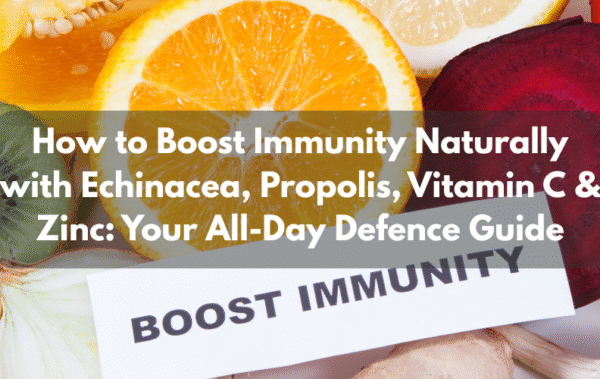No products in the cart.
Why Your Newborn Needs a Vitamin K Shot: Ensuring a Healthy Start

When a baby is born, their body begins an extraordinary journey of growth and adaptation. One vital step in safeguarding their health is administering a Vitamin K shot, which is crucial for preventing a rare but serious condition known as Vitamin K deficiency bleeding (VKDB). In this blog, we’ll explore why newborns need Vitamin K, its benefits, risks of deficiency, and what parents should know.
What Is Vitamin K and Why Is It Important for Newborns?
Vitamin K is a fat-soluble vitamin essential for blood clotting and bone health. It helps produce proteins that regulate coagulation, preventing excessive bleeding. While adults obtain Vitamin K from their diet and intestinal bacteria, newborns are born with very low levels of this critical nutrient.
Why Newborns Lack Vitamin K
Newborns have immature digestive systems that cannot produce Vitamin K, and their bodies don’t store much of it. Additionally, Vitamin K doesn’t pass efficiently through the placenta during pregnancy, leaving infants at risk of deficiency after birth.
The Role of Vitamin K in Preventing VKDB
Without adequate Vitamin K, newborns may develop VKDB—a condition where the blood cannot clot properly, leading to spontaneous and potentially life-threatening bleeding. This can occur in the brain, intestines, or other vital organs.
Benefits of the Vitamin K Shot
Administering a Vitamin K injection immediately after birth is a simple and highly effective way to protect newborns from VKDB. Here’s why this intervention is so important:
1. Prevents Internal Bleeding
Vitamin K ensures proper clotting, drastically reducing the risk of dangerous bleeding episodes that can occur in the brain or gastrointestinal tract.
2. Long-Term Protection
A single shot provides enough Vitamin K to protect your baby during their first weeks of life, when their body is most vulnerable.
3. Safety and Proven Effectiveness
Decades of research have shown that the Vitamin K shot is safe and effective, with minimal side effects. It is the standard of care in most hospitals worldwide.
Risks of Vitamin K Deficiency
Without a Vitamin K shot, newborns are at risk of developing VKDB, which can have serious consequences:
1. Early-Onset VKDB
Occurs within the first 24 hours after birth, often in babies whose mothers took medications that interfere with Vitamin K.
2. Classic VKDB
Develops between days 2 and 7, typically resulting in bleeding from the umbilical stump or other external sites.
3. Late-Onset VKDB
Appears between weeks 2 and 12 and is often more severe, involving internal bleeding in the brain or intestines. Late-onset VKDB primarily affects breastfed babies, as breast milk contains only small amounts of Vitamin K.
The Science Behind the Vitamin K Shot
How It Works
The injection delivers a concentrated dose of Vitamin K directly into your baby’s muscle, ensuring rapid absorption and long-lasting protection.
Why Oral Supplements Aren’t Enough
While oral Vitamin K supplements are available, they require multiple doses and are not as effective as the injection in preventing late-onset VKDB.
What About Natural Alternatives?
Breastfeeding alone cannot provide enough Vitamin K to prevent deficiency. While formula-fed babies may receive more Vitamin K, the shot remains the most reliable method of protection.
Addressing Common Concerns
Some parents worry about the safety of the Vitamin K shot or question whether it is truly necessary. Here are answers to common concerns:
Is the Injection Safe?
Yes, the Vitamin K shot is safe. It has been used for decades and is supported by extensive research. Side effects, such as mild swelling or redness at the injection site, are rare and temporary.
Are There Alternatives?
Oral Vitamin K is an option, but it is less effective and requires multiple doses. The injection offers superior protection against VKDB, particularly late-onset cases.
Does the Shot Contain Harmful Ingredients?
The injection is carefully formulated to be safe for newborns. Concerns about additives are unfounded, as the shot contains only what is necessary for effectiveness.
Why Choosing the Vitamin K Shot Is Essential
Every parent wants to make the best decisions for their baby’s health. Choosing the Vitamin K shot is a proactive step in preventing a potentially fatal condition that affects newborns globally.
What Happens Without the Shot?
Babies who don’t receive the injection are at a much higher risk of VKDB. While not every baby will develop the condition, those who do face serious health challenges that could otherwise be prevented.
Peace of Mind for Parents
By opting for the Vitamin K shot, parents can rest assured knowing they’ve taken a vital step in safeguarding their baby’s well-being.
FAQs About Vitamin K for Newborns
Why Can’t Newborns Get Enough Vitamin K Naturally?
Newborns have underdeveloped digestive systems that cannot produce Vitamin K, and they receive only small amounts through breast milk.
Are There Any Risks Associated with the Shot?
The injection is safe and has minimal risks. Mild swelling or redness at the injection site may occur but resolves quickly.
Can VKDB Be Treated After It Occurs?
While VKDB can be treated, it is far better to prevent it with the Vitamin K shot, as the condition can lead to irreversible damage or death.
Vitamin K is a small but powerful nutrient that plays a big role in ensuring your newborn’s health. The Vitamin K shot is a proven, safe, and effective way to protect your baby from VKDB, giving them the best possible start in life. Talk to your healthcare provider to learn more and make informed decisions for your baby’s well-being.
Start your wellness journey today — Visit Unike Nutra Now
Follow us
Facebook – https://www.facebook.com/profile.php?id=61567462823245
Instagram – https://www.instagram.com/unikenutra/
Twitter – https://x.com/Unikenutra
Buy Now:






